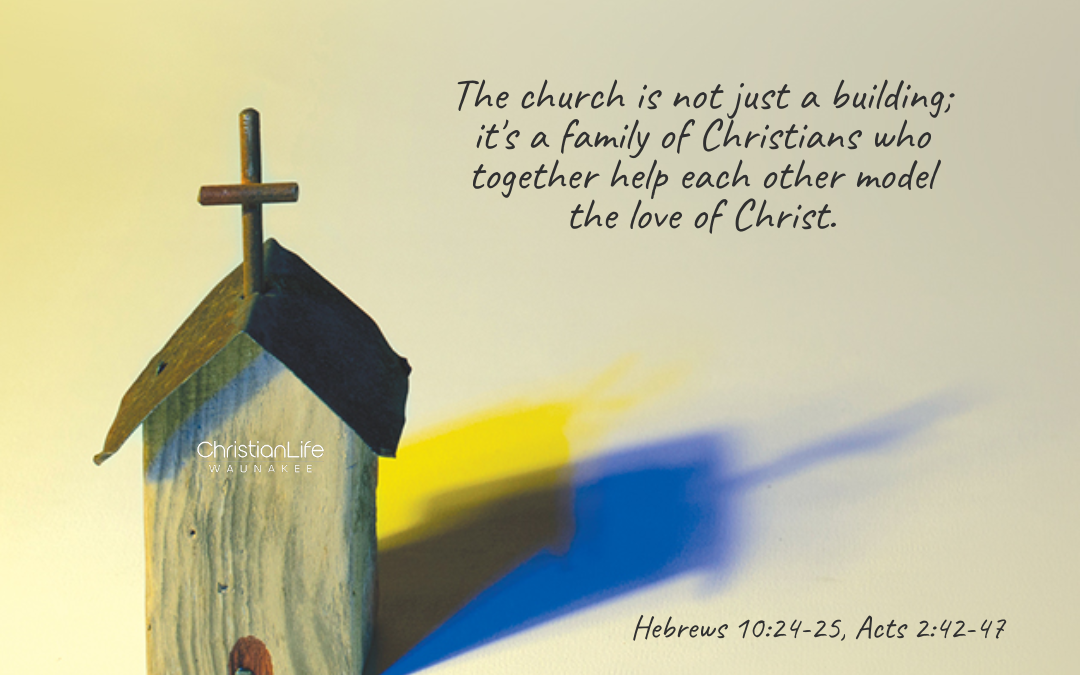There are several reasons you may find yourself needing to select a church. For example, maybe you’re moving to a new area, or perhaps you’re a new Christian or newly-active churchgoer. As a young college freshman in 2013, I found myself pretty unprepared for the task of choosing a church to call home during my college years. Until then, I’d always just followed my family to the church of their choice, but now I was in a different state on my own. Our university encouraged us to join a local church, but because of the area we were in, there were LOTS of churches—and lots of GOOD churches. It can be daunting to choose a church family when there are so many options out there. Here’s some of the best advice I got when looking for a guideline on choosing a church:
The Purpose of a Church
First, it’s important to understand what the church exists to do. Believers worldwide are all part of the universal church, but a local body of believers exists for several special reasons. Acts 2: 42-47 presents a picture of the church where local believers lived together, ate together, helped each other, and met regularly to learn from the apostles’ teachings and worship God. And Hebrews 10:24-25 suggests that, in a local church, believers should also encourage and equip each other to love and serve others. The church is not just a building or a worship service; it’s like a family of fellow Christians who together help each other model the love of Christ.
What to Consider
So how do you choose a body of believers to join? Here are some questions to think about during your search. Some of these questions might be more or less important to you, so it might be helpful first to decide which aspects are your highest priorities.
- Where are they located? (Does its distance make it feasible for you to attend regularly?)
- Who are they? (Does the congregation represent a diverse range of age groups, life experiences, economic backgrounds, ethnicities, etc.? Is that important to you? If you’re a family with children, you may also want to know if there are age-appropriate opportunities for them to learn.)
- What do they believe? (Are they part of a specific denomination or doctrinal tradition? What do they believe about Jesus, the Bible, salvation, etc.? All Christians share certain core beliefs, but there’s a lot of room for differences on secondary issues. While church members don’t have to agree on everything, it could prevent frustration if you’re generally aligned with the church in areas that matter to you.)
- What do they do? (Are there opportunities to get involved within the church or community? Most churches have a service or social component, such as missions or outreach. How are your monetary offerings going to be used? How do members of the congregation behave toward each other and their community?)
- How will you fit? (Can you see yourself building relationships with the people there? Maybe there’s even a service area where you’re needed.)
How to Gather Information
So how can you find all these things out? It may take some time and effort, but there are several ways to learn about a local church. Of course, it’s always wise to pray for and seek God’s guidance throughout this process.
- Browse the church’s website (their articles of belief or doctrinal statements are good places to start)
- Ask friends or people in the area
- Meet up with the pastor or other church members to ask them questions
- Visit the church (if it seems like a good fit, you may want to spend a period of time attending before committing to join permanently)
Finally, remember that there’s no such thing as a perfect church. Choosing a home church can take time and patience, but the rewards of being part of a local body of believers are worth the effort!
—————————————————

